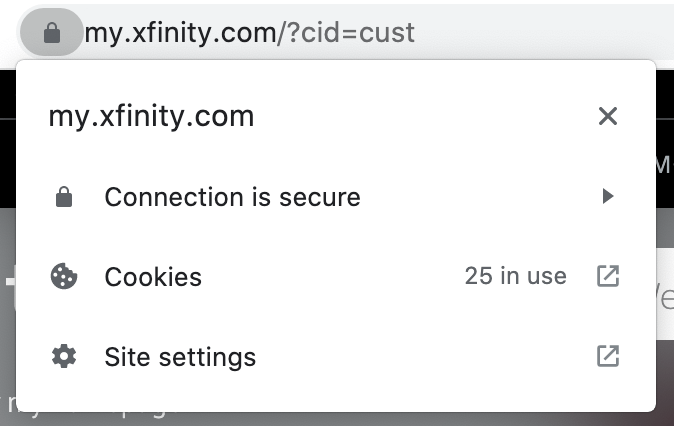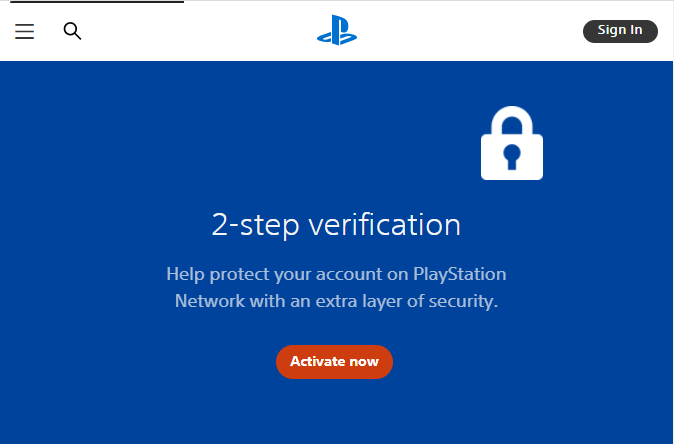- Home
- Blog
- Web Design
- 7 Website Security Best Practices for Your Company
7 Website Security Best Practices for Your Company
-
 6 min. read
6 min. read
-
 Matthew Gibbons
Matthew Gibbons Senior Data & Tech Writer
Senior Data & Tech Writer
- Matthew is a marketing expert focusing on the SEO & martech spaces. He has written over 500 marketing guides and video scripts for the WebFX YouTube channel. When he’s not striving to put out some fresh blog posts and articles, he’s usually fueling his Tolkien obsession or working on miscellaneous creative projects.
You’ve just finished setting up your new HTTP website. You haven’t really found the time to install any security plugins, and you’ve set your password to 12345 so you won’t forget it… but the site is up and running, so everything is fine, right?
Wrong. On the contrary, your site is vulnerable to attacks from malicious hackers and bots, who could bring down your website in moments and cause you to lose out on revenue. The good news is, you can avoid that fate if you take the time to enact some website security best practices.
What are those web safety practices, though? What can you do to secure your site against hackers? If you’re desperate for answers, don’t worry — we have some for you!
Just keep reading to learn more about web security tactics.
Then subscribe to Revenue Weekly — our email newsletter — for more digital marketing tips!
7 website security best practices
The idea of someone hacking your site can be scary, but don’t worry — if you take the right steps, you can keep that from happening. Here are seven expert website security practices to implement on your company’s site!
1. Use HTTPS
One of the first and most essential steps toward securing any website is to use HTTPS. Many sites use the standard HTTP protocol, but HTTPS is a similar protocol that provides the additional benefit of encrypting data on your website.
In addition to providing a basic layer of security, using HTTPS will help you attract and retain more traffic. It helps you rank higher in Google search results, since Google prioritizes HTTPS sites.
Additionally, users will see that their connection is secure when they visit your site, leading them to stay longer and be more willing to share financial information when buying from your online store, if you have one.

2. Use strong passwords and 2FA
Another essential web security component is passwords. The last thing you want is for hackers to easily guess your password and enter your website — that’s like leaving your house key out on the porch for someone to find, enabling them to walk right in the front door.
Be sure to create passwords that aren’t easily guessable and consider changing them occasionally just to be safe. Additionally, look into two-factor authentication (2FA). 2FA is a setup that, in addition to requiring a password, asks you to verify your identity through a call or text before logging in to your website.

That ensures that you’re the one logging into your website every time, and not a hacker who happens to have your password. You should use strong passwords and 2FA for any member of your company who can log into your website.
3. Back up your website
As unfortunate as it may be, there are times when even the best defenses fail to keep out hackers. It’s uncommon, but it does happen. If it happens to you, you’ll want to make sure you’re prepared to deal with the cleanup — and the best way to do that is to back up your site.
There are numerous programs that will help you back up your site. It’s a vital step because if hackers compromise your website, they could end up destroying it. By consistently backing up your site, you’ll always be ready to restore it with the click of a button once you the hackers leave.
4. Routinely scan for malware
One of the most common ways for hackers or bots to break into your site is with malware. There are numerous ways hackers can inject malware into your site, but once it’s there, it does a lot of damage. That’s why you should lookout for any viruses that may appear.
There are various platforms and plugins you can use to scan your website, and you should take advantage of those options. You want something that will catch malware the second it appears, destroying it before it has the chance to do any damage.
5. Run penetration tests
Another top-notch web safety practice is to run penetration tests, where you look for vulnerabilities by simulating attacks.
Think of it like this: If your website is a castle, you’ll want to keep a lookout for any approaching enemies that might try to break in. But you’ll also want to search the castle walls for any weak spots. If you find a hole in the wall that someone could slip through, you’ll want to patch it up.
That’s what penetration testing does — it looks for weak spots in your defenses. It does this by simulating hackers and bots trying to enter your site, and if it finds a way in, it alerts you so that you know to patch up that weak point.
You can run automatic penetration tests with different online tools, or you can have a team of experts do it manually.
6. Install website security plugins
We’ve already mentioned web security plugins once or twice on this list, but they’re important enough to deserve their own spot. That’s because you can only see so many security problems with the naked eye, and it’s good to have programs running in the background to keep your site secure.
There are a wide variety of web security plugins available online, and they do a multitude of things. Some keep an eye out for malware, others run vulnerability tests, and still others fight off viruses and hackers.

Whatever plugins you choose, make sure you have at least a few on your site if possible. Those plugins will be your best friends when it comes to guarding your website against attacks.
If you’re not interested in adding another plugin to your site, consider a website security solution instead.
7. Launch a bounty program
Finally, it’s a good idea to offer bounties for vulnerabilities on your website. That means you publicly offer a reward to anyone who can find security vulnerabilities on your website.
Launching a bounty program will often attract bounty hunters — more specifically, freelance web security specialists who will perform their own version of penetration testing and report to you with any vulnerabilities they find.
This option is a great way to catch anything your team misses, and it has a high chance of revealing vulnerabilities since the bounty hunters will have every incentive to find weak spots on your site.
“Our marketing department has a lot of key performance indicators that WebFX has always helped us achieve… WebFX has always worked hard to make sure that we’re getting what we need out of the partnership, not just what may seem like the best result.” HydroWorxWebFX helps companies like yours reach their business goals
WebFX can help you implement your web security tactics
Need a hand putting these web safety practices into action? No worries — just partner with WebFX! We’ve been in the web development game since 1996, giving us over 29 years of experience.
When you partner with us for our web security services, you’ll get help implementing all the above website security practices and more. You’ll also receive a dedicated account representative to keep you in the loop about everything we do for your website.
To get started with us, just call 888-601-5359 or contact us online today!
-
 Matthew is a marketing expert focusing on the SEO & martech spaces. He has written over 500 marketing guides and video scripts for the WebFX YouTube channel. When he’s not striving to put out some fresh blog posts and articles, he’s usually fueling his Tolkien obsession or working on miscellaneous creative projects.
Matthew is a marketing expert focusing on the SEO & martech spaces. He has written over 500 marketing guides and video scripts for the WebFX YouTube channel. When he’s not striving to put out some fresh blog posts and articles, he’s usually fueling his Tolkien obsession or working on miscellaneous creative projects. -

WebFX is a full-service marketing agency with 1,100+ client reviews and a 4.9-star rating on Clutch! Find out how our expert team and revenue-accelerating tech can drive results for you! Learn more
Make estimating web design costs easy
Website design costs can be tricky to nail down. Get an instant estimate for a custom web design with our free website design cost calculator!
Try Our Free Web Design Cost Calculator


Web Design Calculator
Use our free tool to get a free, instant quote in under 60 seconds.
View Web Design Calculator
Proven Marketing Strategies
Make estimating web design costs easy
Website design costs can be tricky to nail down. Get an instant estimate for a custom web design with our free website design cost calculator!
Try Our Free Web Design Cost Calculator






